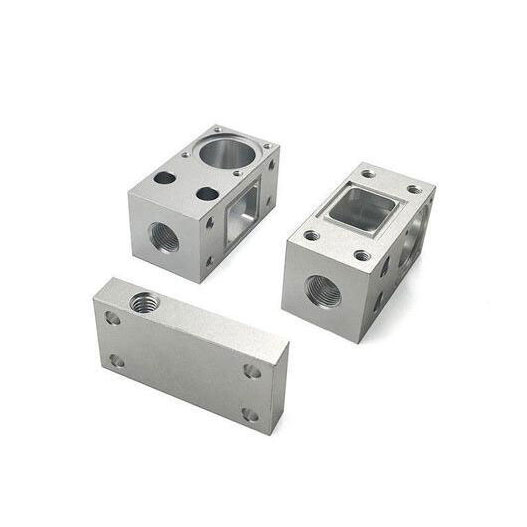Aspects of CNC machining services
2024-02-20
CNC machining services refer to the manufacturing processes that utilize computer numerical control (CNC) machines to remove material from a workpiece to achieve a desired shape. CNC machining is a versatile and precise method for producing components from various materials. Here are key aspects of CNC machining services:
1. CNC Machines: CNC machines are automated tools controlled by computer programs that guide the cutting, milling, or other material removal processes. Common CNC machines include CNC mills, lathes, routers, and plasma cutters.
2. Materials: CNC machining can work with a variety of materials, including metals (such as aluminum, steel, and titanium), plastics, wood, composites, and more. The choice of material depends on the specific requirements of the final product.
3. CAD/CAM Programming: Computer-Aided Design (CAD) and Computer-Aided Manufacturing (CAM) software are used to create detailed 3D models of the desired part. The CNC machine is then programmed with these models to guide the cutting and shaping processes.
4. Precision and Tolerances: CNC machining is known for its high precision and ability to achieve tight tolerances. This makes it suitable for producing complex and intricate components with consistent quality.
5. Processes: CNC machining encompasses various processes, including:
- Milling: Involves rotating a cutting tool to remove material from a stationary workpiece.
- Turning: The workpiece rotates, and a cutting tool shapes it as it moves along its axis.
- Drilling: Creates holes in the workpiece using a rotating drill bit.
- EDM (Electrical Discharge Machining): Uses electrical discharges to remove material, suitable for machining hard metals.
- Waterjet Cutting: Utilizes a high-pressure stream of water or a mixture of water and abrasive material to cut through the workpiece.
6. Multi-Axis Machining: CNC machines can have multiple axes of motion, allowing for more complex and three-dimensional machining. Multi-axis machining is particularly useful for intricate designs.
7. Prototyping and Production: CNC machining is employed for both prototyping and large-scale production. It offers flexibility to create prototypes for testing and validation before mass production.
8. Surface Finishing: Depending on the application, CNC machined parts may undergo additional processes for surface finishing, such as polishing, anodizing, painting, or coating.
9. Quality Control: CNC machining services typically include quality control measures to ensure that finished parts meet specified standards. This may involve inspection using precision measuring tools and equipment.
10. Lead Times and Efficiency: CNC machining is often chosen for its efficiency, allowing for relatively fast production times, especially for small to medium-sized production runs.
CNC machining services are widely used across industries such as aerospace, automotive, medical, electronics, and more. The technology continues to advance, enabling even more precise and efficient manufacturing processes. When considering CNC machining services, it's essential to communicate design specifications, tolerances, and quality requirements with the machining service provider.



